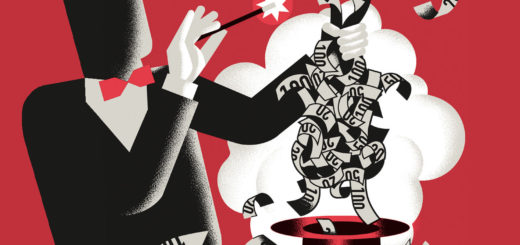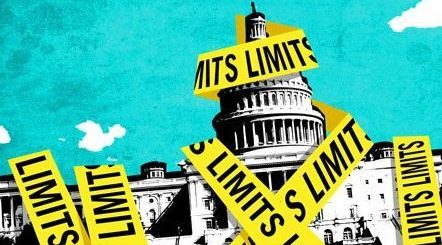The Keynesian Flaw

The Keynesian prescription has always been to engineer an increase in aggregate demand for an ailing economy. The flaw in this reasoning is not found in aggregate demand, which can be easily manipulated by the dearth or superfluity of money, but rather in aggregate supply.
In economic hardship, the Keynesians inevitably select their preferred remedial lever: augmented government expenditure to utilize idle resources. Suppose the government requires $1 billion for some public venture: a job creation project consisting of workers digging holes in the morning and filling them in during the afternoon: an undertaking of overtly little worth. The government borrows $1 billion on the markets for the diggers’ project. There is an effect upon interest rates, but it is negligible given the size of the economy. The borrowing rate is X%.
At the end of the project, idled people were paid to produce nothing for the $1 billion received. They did not build any houses. They did not build cars. They did not enforce the law. They did not create any salable or valued product. If none had bothered to show up while still receiving pay, the result would have been the same.
The error in Keynesian reasoning is located within the factor of production. When the nation initially earned the $1 billion, value was given for the income received. The worthy employees gave the economy at least $1.0 billion worth of production or supply. They built, designed, engineered, insured, piloted, manufactured; performing a variety of economically worthy pursuits, supplying goods that the markets demanded. The earners produced valued goods and services and were rewarded for their efforts. With the earnings, they retired debt, consumed, invested, saved.
The Dig and its assorted workers certainly consumed materials, equipment, and domestic goods. But the good offered by the project no one needs, no one values. The entire project yielded nothing of value, nothing for consumption or service. The effort’s value comes to naught.
The productive workers have supplied a certain amount of salable goods. The unproductive workers have supplied no salable goods. But both have the means of competing for a diminished supply of goods. With 90% of the nation employed in worthy pursuits and the idle remainder hired for the worthless Dig, 100% of the nation’s workers will compete in markets for only 90% of the goods, the other 10% being valueless. Too much money chasing to few goods, or by another name – Inflation.
If the numbers of idle workers climb because of the severity of the recession, the entire situation aggravates accordingly: less salable goods available among consuming competitors. The problem in the Keynesian prescription is not a shortage of aggregate demand, but surprisingly a shortage of aggregate supply.
A Keynesian would argue that with demand for goods soaring, companies should increase production. Unfortunately, the projects creating such unsaleable goods have utilized the idled capacity of the economy. Additional labourers, material, and equipment must be had at a premium, not a discount. For most firms there may be little profit in expanding production and great profit in simply raising prices.
Keynesians would argue that most government expenditure yields some value for the nation. Certainly true. However, within public finance there is meager cost and benefit analysis. There is some accounting of the financial costs of public endeavours, often vague and erroneous, usually bearing many an upward adjustment. Yet, an honest accounting of the financial benefits of public enterprise is notoriously absent.
There are always costs in the things that we do and there are always benefits. In every decision, we labour at making benefits exceed costs. Had the public expenditure lowered costs or increased revenues for business or diminished prices for the consumer or enlarged his income, by an amount exceeding the funds invested and capital charges, then one may declare the expenditure a success. Until the authorities and economists develop a system and its tools, returns on public expenditures must always be scant or negative.
What course would best benefit a nation in recession knowing the present delinquencies and ruinous nature of public expenditure?
In economic crises Government should avoid the use of any resources in equipment, material, and labour unless an evaluation of costs and benefits justifies the undertaking.
Put money into the hands of those that know best how to right their financial ship and expend on worthy goods. Put money into the hands of those persons and firms that know well and can produce the items valued by the markets Lower the taxes on many activities and objects, and the nation will thrive. Lower or abolish the income tax and corporate tax, and marginal endeavors shall become profitable, and profitable endeavors more so. Let the government maintain their present spending and erase taxes.
William Gladstone spoke of the reproductive effect of tax cuts on government revenues. He could never quite believe how fast subsequent tax revenues erased and surpassed the created deficiency. That was 150 years ago.
Offer financial aid to the idle: A loan for living and schooling expenses to enhance education or a loan to cover the unemployed until the recovery begins. The individual will then be able to decide the best course given his circumstances. If the recovery provides a worthwhile position, the worker will have little reason to ignore it. The student as well.
The problem is a lack of worthy production, not a lack of aggregate demand. By limiting saleable and desired production with harmful make work projects, the nation is poorer with the result. By encouraging worthy production and limiting harmful public expenditure, the nation is wealthier with less competition for desired production.



